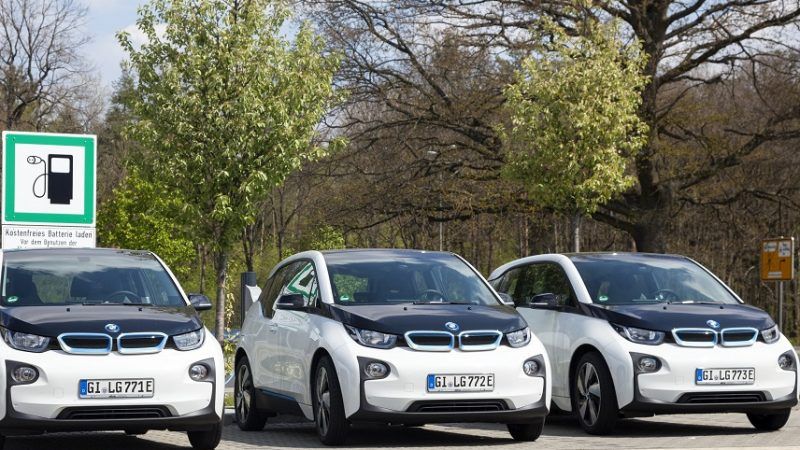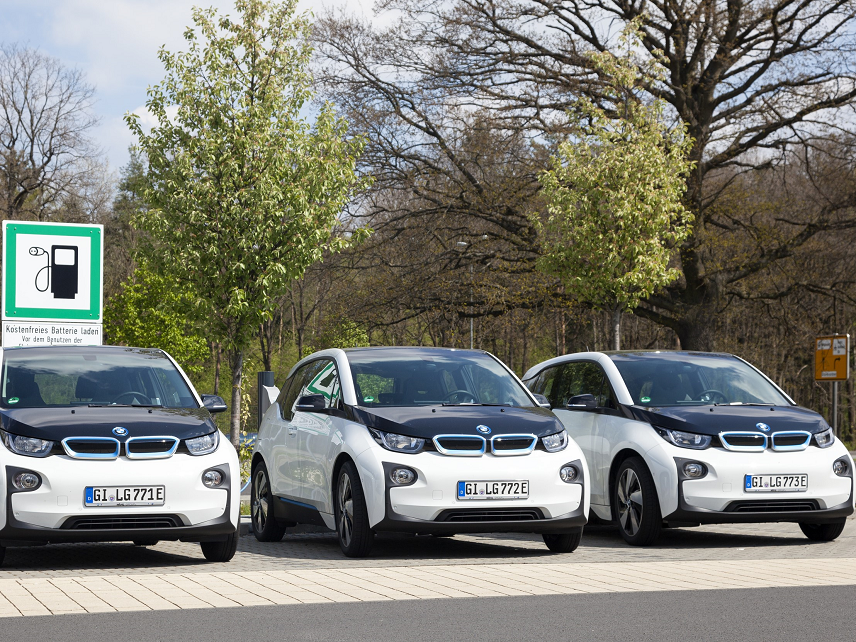Final GOP Tax Bill Retains Tax Credits for Wind Energy, Electric Cars
Some subsidies never die.


It's hard as hell to get rid of a government handout once it's been established. The beneficiaries, concentrated and organized, will fight tooth and nail to keep any program that lines their pockets. The mass of taxpayers, by contrast, have little incentive to go to war over a few dollars off their paycheck.
Consider the congressional Republicans' tax bill. The final version of the legislation retains tax credit programs for electric car buyers and renewable energy producers.
This is a dramatic change from the first version of the law—the House's Tax Cuts and Jobs Act, introduced in early November. That would have zeroed out both the Plug-In Electric Vehicle Tax Credit and a tax credit program for renewable energy production that is used mostly by wind farm owners.
Unsurprisingly, interest groups are cheering the preservation of the programs. "This credit supports innovation and job creation while helping drivers access advanced vehicle technology," announced the Electric Drive Transportation Association. "Keeping the plug-in vehicle credit in place is the right policy for consumers and for the nation."
The tax credit is a good deal—for makers and consumers of electric cars. First established in 2010, the electric vehicle program awards a maximum $7,500 tax credit to the purchasers of full electric cars; buyers of hybrid cars get a smaller credit. The benefits of the subsidy accrue to a vanishingly small number of predominately wealthy consumers.
Only 563,710 electric vehicles have been sold in the United States as of 2016, according to a report from the International Energy Agency (IEA). Of these, slightly less than 300,000 are truly electric, the rest being plug-in hybrids. California, which hands out a $2,500 tax credit for electric car purchases in addition to the federal subsidy, has seen 83 percent of its electric car tax credits go to people with annual incomes over $100,000, according to a 2016 Berkeley study. The House estimated that repeal of the tax credit, in conjunction with the repeal of several other tax credit programs, would see federal revenues increase by $200 million by 2027.
The wind energy credit, meanwhile, costs some $3.4 billion a year. The program was initially set to expire in 1999, but it has been perpetuated and expanded since. The House had initially planned to shrink this tax subsidy and speed up its phaseout, saving about $12.4 billion by 2027.
The Senate's tax bill retained both credits, and in conference it apparently was easier to keep the money flowing than to scale it back. By concentrating benefits and distributing costs, these programs have ensured that they'll live on.
Rent Free is a weekly newsletter from Christian Britschgi on urbanism and the fight for less regulation, more housing, more property rights, and more freedom in America's cities.


Show Comments (45)